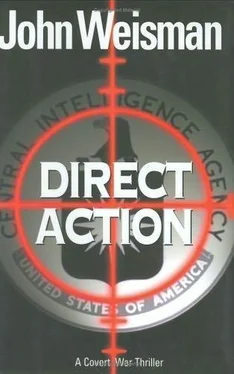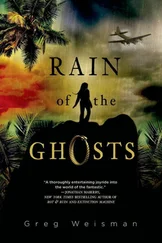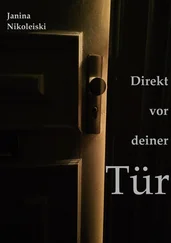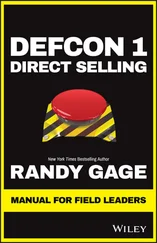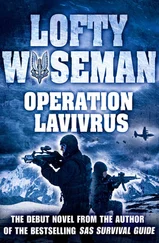Tom stepped into the bright foyer, where he noticed that even Reuven’s eyes were different. They were no longer dark brown but a greenish hazel-much brighter. Even his heavy eyebrows had been trimmed back. In fact, the whole shape of Reuven’s face seemed to have changed. He watched as the Israeli smiled broadly. Of course it had: Reuven was using a set of dental prosthetics.
“So-are you ready?” The Israeli was all business.
“Let’s do it.” Tom shed his clothes and climbed into a black T-shirt, then shrugged into a set of dark blue coveralls with white reflective strips identical to what Reuven was wearing. They were the same as the ones worn by EUREC/GECIR technicians-the crews who serviced Paris’s traffic signals and street lighting.
“Hoist your sleeve.” Tom rolled up his left cuff over the elbow and displayed the inside of his arm so Reuven could apply an appliqué tattoo like those commonly worn by former French soldiers.
Once the ink was dry, Tom pulled on a pair of rough-soled work boots. He looked over at Reuven. “Paperwork?”
Without comment, Reuven handed Tom a wallet. Tom opened the cheap leather trifold and checked inside. There was a driver’s license identifying him as Serge Thénard, as well as a full set of pocket litter for the alias. He flipped through the bundle. There were forty euros, a carte orange for the metro, a dog-eared ticket for a 2002 Paris Ste. Germaine football game, half a dozen business cards from various electrical wholesalers, a pair of receipts from an ATM, a union membership card and dues receipt, a Visa card, an honorable discharge card from the French Army, even an old fifty-franc note folded around a préservatif .
Tom displayed the condom between thumb and forefinger and gave the Israeli a dirty look. “Funny, Reuven, real funny.” He tucked the wallet in the back pocket of his coveralls and paused just long enough to savor the moment.
Savor, because Tom felt a euphoric rush of anticipation and excitement. He was fully charged, totally alive. These were the same larger-than-life emotions he experienced whenever he stood in the door of a plane at twelve thousand feet and then took that first step into the slipstream; the same heady mixture of emotional and physical highs he’d feel the instant he kicked through the starting gate and started the long, inexorable downhill run. He was feeling the Rush . And he loved it.
He’d first experienced what he called the Rush as a twelve-year-old when he water-skied up and over a six-foot ramp. The sensation of flying… flying …through the air that way had been the most incredible experience of his young life. Then, when he’d taken sky-diving lessons on his sixteenth birthday, it happened again. Adrenaline, euphoria. An ineffable, exhilarating, physical and emotional high. At St. Paul’s, then again at Dartmouth, it was rock-climbing and skiing-downhill and giant slalom. As a member of the Dartmouth ski team, he’d set a course record that had stood for six years.
After college, it was operations that gave him the Rush. Brush passes in hotel corridors, meeting his agents in plain sight in crowded restaurants, or sensing surveillance and slipping into a rabbit hole to go black gave Tom the same physical and emotional highs as jumping out of planes or taking a curve at seventy-plus miles per hour on a downhill course.
He’d gotten the Rush during his training evolution at the Farm, and known in his gut he’d made the right decision in joining CIA. And then, when life in the real world of espionage turned out to be less than he’d imagined-when too many of his bosses were cautious and risk averse, when recruiting agents actually became hazardous to his career, when reports officers and analysts were put in charge of the DO-he’d had to look elsewhere for satisfaction.
That was when he’d discovered motorcycles. During his Paris tour, he’d splurged on a Ducati, which he discovered, much to his delight, was the perfect vehicle on which to run cleaning routes. When he’d been yanked back to headquarters, he’d brought the bike home. He used it to commute to Langley. Hitting a hundred on the George Washington Parkway was the closest thing to the Rush he felt during two and a half years of CTC paper-pushing. He still kept a bike in Paris-a big black BMW 750. He’d pre-positioned it in the tiny courtyard of the safe house four days ago.
Goddamn. The Rush. He hadn’t thought of the term in months. But as he thought about it now, the Rush was why he’d been so easy for Tony Wyman to recruit. They’d been sitting in the rearmost leather booth at the Palm on Nineteenth Street. Tony had screwed the monocle into his right eye, squinted at the wine list, and ordered a bottle of La Lagune ’82. When it had been decanted, poured, and tasted, he’d inclined the rim of his glass in Tom’s direction, allowed the monocle to fall onto his vest, and begun his pitch.
You’ve outgrown the place, he said. Left it behind. That’s because you’re one of us. You live for results-to win. You love to steal secrets. I know because that’s how I feel-always have, always will. You get the same rush I do when your guy shows up and he’s holding paper. You love it when a false-flag recruitment produces a twenty-four-karat nugget. There’s nothing like that anymore, is there ? He looked straight into Tom’s eyes. When’s the last time you felt like that ?
Tom’s expression was neutral. But, of course, Tony was right.
What’s going on at stations worldwide? Nothing. Nobody goes out anymore. They’re all sitting in goddamn fortresses writing memos. So what are the NOCs doing? They’re all using business cover these days. Christ, doesn’t Tenet understand that gringo executives and salesmen won’t penetrate al-Qa’ida’s networks? Why the hell hasn’t CIA set up Islamic charity front groups in Germany and France and Holland and Pakistan, in Indonesia and Qatar and Sudan and the UAE and used them to penetrate the Islamists who want to kill us? We should be running our own madrassas, for chrissakes.
You know why. It’s because we don’t have qualified NOCs. But it’s also because it would be very, very risky, and risk-takers don’t receive performance bonuses these days. You want to be promoted? You stay on the reservation. You play it safe. You keep your head down. Better to spend your days writing e-mails querying about some arcane matter, or dabbling in the stock market, or buying investment real estate than sticking your neck out to recruit some penetration agent who might be a double. Recruiting’s risky, Tom. That’s precisely why the crowd on the seventh floor doesn’t like it. They weigh every single recruitment these days. “ How will it look in the Washington Post ?” That’s what they ask. Then they take a pass. Tony’s gray eyes bored into Tom’s head. You see it. All around you. And when you do, you’re pissed.
Tom had sipped his wine and said nothing.
I’m right, Tony had said. You can’t say anything because there’s nothing to say. But you know I’m right. Christ-even in Iraq, there are virtually no risk takers. Thirty-day deployments-that’s what they’re doing now. C’mon, Tom, how many recruitments do you think they’re making in thirty days? You know what’s happening in Iraq as well as I do. They’re spending all their time in the Green Zone, or hunkered down behind concrete barriers at CIA’s bases in Mosul, Kirkuk, Basra, or Sulaimaniya.
Tom’s eyes dropped. He’d felt exactly the same way. Too damn many of the people going to Iraq were doing it only to ticket-punch. Get the hazard pay. Make sure the powers that be at Langley checked the appropriate box next to their names so they’d be promoted on schedule. The guys doing the real work-the PMs 21and the contractors-were treated like peons.
Читать дальше
